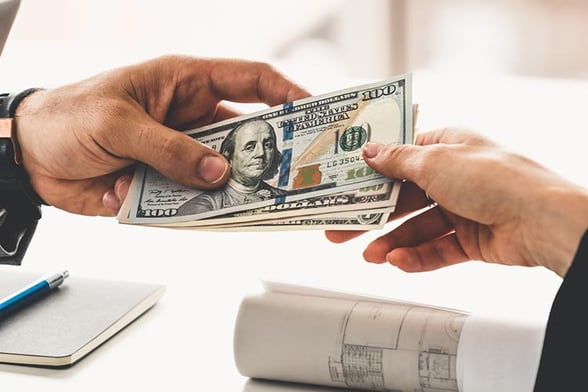
The 1031 exchange isn’t all or nothing, meaning that 100% of the sales proceeds must be used in the exchange. However, it may come at a price. Boot in a 1031 exchange refers to the fair market value of cash, benefit, or other non “like-kind” property received by the taxpayer in an exchange of a capital asset, which is subject to capital gains tax.
If you want to take out some cash, there are three stages — before, during, and after — within which to take proceeds out of your 1031 exchange.
1. Before the 1031 Exchange
Investors can receive part of the sales proceeds from the relinquished property and then conduct a 1031 exchange to defer paying capital gains taxes on the remainder of the proceeds. This cash is called a cash boot, subject to taxation and depreciation recapture taxes.
Not using 100% of the sales proceeds is also known as a partial 1031 exchange, which follows all the same rules and restrictions as a standard exchange transaction. Typically, a qualified intermediary (QI) will hold all of the proceeds from the property sale, and distribute the excess cash from the exchange, but you will have to wait to receive the excess funds after you close on the replacement property. Once the QI releases the funds, you will owe capital gains taxes on the amount.
2. During the 1031 Exchange
Another way to receive funds is during the exchange, specifically when no replacement property can be identified during the 45-day identification period, which begins when the relinquished property is sold.
According to U.S. Treasury Regulations Section 1.1031(k)-1(g)(6) – commonly referred to as “g(6)” – the taxpayer cannot “receive, pledge, borrow or otherwise obtain the benefits of money or other property before the end of the exchange period.” The QI cannot release exchange proceeds during the 45-day identification period unless it is for a purchase or deposit on a replacement property under contract. If the 45-day identification period has passed and the taxpayer has not identified any replacement property(ies), the QI can return the exchange proceeds.
3. After the 1031 Exchange
The QI can release funds to the investor after the replacement property has been acquired and all closing costs have been paid, typically after the 180th day of the exchange. This can also happen if the transaction falls through due to seller non-performance right before the closing of escrow.
Some investors may choose to take cash out of a 1031 exchange to use for personal use or to invest in other assets that may produce significant returns, but depending on which option you choose and how it’s executed, there may be tax consequences. You’ll want to consult your QI and a tax professional to go over all of your options and consider the possible consequences of taking cash out of a 1031 exchange.
This material is for general information and educational purposes only. Information is based on data gathered from what we believe are reliable sources. It is not guaranteed as to accuracy, does not purport to be complete and is not intended to be used as a primary basis for investment decisions. Realized does not provide tax or legal advice. This material is not a substitute for seeking the advice of a qualified professional for your individual situation. Costs associated with a 1031 transaction may impact investor’s returns and may outweigh the tax benefits.



